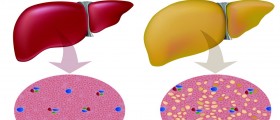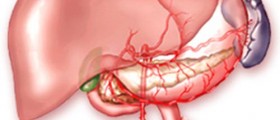
Human body has several glands and one of the most important is the liver, which is also the largest of them all. It is responsible for the removal of toxins, fat metabolism processes and it also has numerous other responsibilities. Systemic levels of many body and blood elements are maintained by the liver enzymes. You can see how much responsibility this gland has, and if for some reason this gland stops functioning, a person can face death. We will talk more about the causes of the liver failure.
Causes
There are several possible causes and overdose of acetaminophen is the most common one. Chronic liver failure can also be caused by the idiosyncratic reaction to some medications. Fatty liver disease is mostly caused by alcohol and this problem can even lead to liver failure if alcohol consumption is not prohibited or reduced. Viral infections of the liver, such as hepatitis and Reye syndrome, can cause liver failure as well. Complications during pregnancy can produce symptoms of acute liver failure.
Treatment
Hospital must be visited immediately once the liver failure occurs. Intensive care is needed to counter the signs of liver damage. Adequate nourishment is the supportive treatment which is the first step in the treatment process. The liver will not be able to manage fats and glucose and this is why person has to be careful about the things he or she eats. Patients in this condition can only receive intravenous foods and nutrients and the consumption of fat and protein is strictly prohibited. If a person finds himself in this situation, the mechanical ventilation will have to be monitored along with the balance of fluids. Encephalopathy can cause the liver failure and if this happens, intracranial pressure needs to be monitored.
The toxicity caused by the overdose of acetaminophens has to be eliminated, which can be done with the intravenous injections of N-acetylsteine. The N-acetylsteine is taken intravenously because it can be absorbed better than when taken in the oral form. The last resort is the liver transplantation and this involves removal of the fatty or diseased liver and its substitution with a healthy one. This surgery is very risky and expensive and before you decide to undergo it, you have to take many factors into consideration. Also, the hospital has its rules and they will have to see if you are a good candidate for the transplantation of liver. All transplantations have a risk of organ rejection. Dialysis is a solution for the hepatorenal syndrome and it can remove the toxins that the liver now can't. We have mentioned some information about the liver and we hope you will find them useful. Know that liver failure treatment success largely depends on the timely response.

















Your thoughts on this
Loading...